Passing on the knowledge
With three victories to his credit, former continental and UK professional John Herety is one of the...
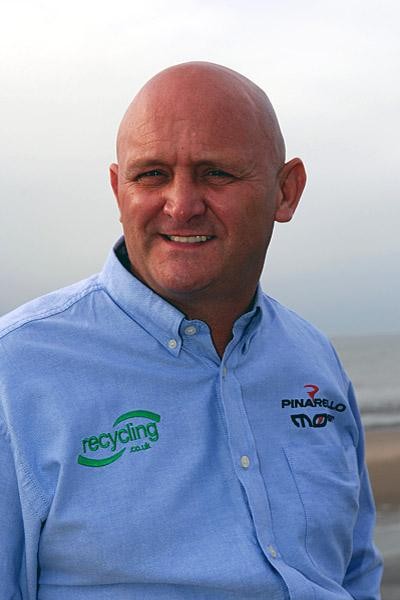
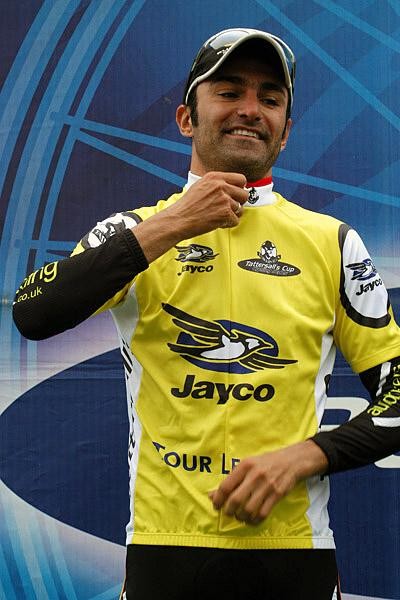
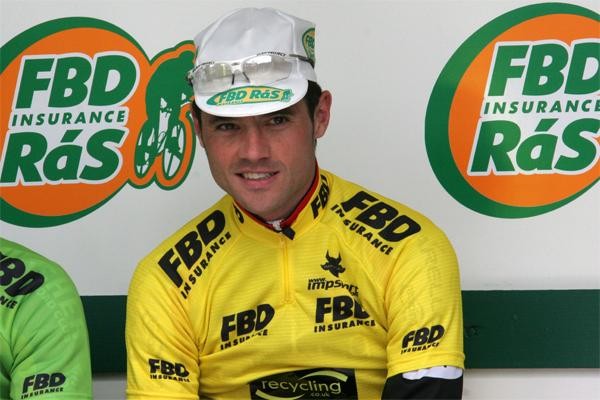
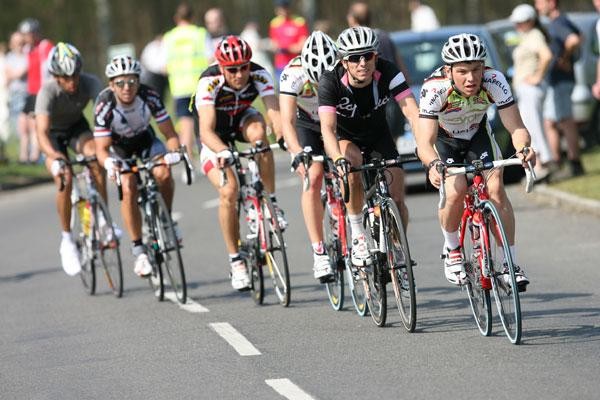
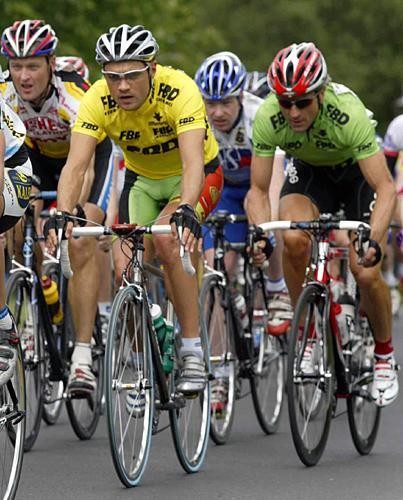
An interview with John Herety, May 25, 2007
Former national team manger John Herety is currently looking after the Stena Line/Recycling.co.uk team in the FBD Insurance Rás in Ireland. In recent years he has been one of the most successful managers in the event but back in the eighties, he also had a short but successful career as a continental and UK pro. Cyclingnews' Shane Stokes profiles the Briton who, just over two decades ago, was racing on the same pro team as the 1980 Tour de France winner Joop Zoetemelk
With three victories to his credit, former continental and UK professional John Herety is one of the most successful managers in the recent history of the FBD Insurance Rás. Last year he showed his experience in guiding Kristian House to the overall win, playing the team's second card after the stage one victor and double Rás champion Chris Newton missed an important break.
The success followed on from earlier successes with Paul Manning in 2001 and Newton in 2003, both riders competing as part of the Great Britain national squad that Herety was managing at the time.
Now 49 years old, he's been looking after the Recycling.co.uk Continental team since the start of last season. He is once again in the driving seat for the Britain/Stena Line Recycling.co.uk campaign in this year's FBD Insurance Rás.
While he has worked with strong riders, a big factor in Herety's achievements is his own long experience in the sport. He has been a team manager for 18 years and, prior to that, was himself a professional in Europe and on the UK pro scene.
"My career was basically short and sweet," he said, when asked recently about his own racing background. "I was not so good as a junior but I came to form at around 20 or 21 years of age. At the time I was working as a chef and in 1979, was put on the British Olympic short list for Moscow.
Get The Leadout Newsletter
The latest race content, interviews, features, reviews and expert buying guides, direct to your inbox!
"I said I would never give up a job to go cycling full-time but fate lent a hand – my employer made me redundant just as I was put on that short list! So I said to myself that I'd really only get one go at the Olympics, and applied myself to that. Once the Olympics were over, it was a question of, okay, what do I do now?"
Herety rode both road and track in the 1980 Moscow Olympics and then decided to try his hand in France the following season. The ACBB club was then one of the best in the country, guiding Stephen Roche, Phil Anderson, Paul Sherwin and Graham Jones to pro contracts. He decided to head there and it worked out well.
"I went over to the club in 1981, with Sean Yates, and we both basically dominated the early part of the racing season. Sean went on to have a terrific season and I did sufficiently well to get a pro contract with a team called Coop Mercier. In fact, I got the offer of a contract to race for Peugeot but I felt that there were too many English-speaking riders there already."
Herety's graduation to the paid ranks came on the back of some good amateur performances. In 1980 he won a stage of the Peace Race and the Manx International, and then on year later he took the GP de Peymenaide, GP de Sanary, GP de St Maxime and Paris-Rouen. Unsurprisingly, he was a professional by 1982.
"Myself and Sean had signed pro contracts by the end of February, to be honest - we were wanted that much! I then rode 82, 83, and 84 over there as a pro, but then probably got chronic fatigue syndrome. I say probably because they didn't know about it back then, they just said I had a virus of some sort. Unfortunately I was never the same again. I was probably a bit fragile and didn't realise it at the time, getting totally over-raced. Hindsight is a great thing."
There was certainly a difference in his results after 1982. That year, he won the national road race championships, took second in the Grand Prix Pino Cerami and on stage two of the Ronde van Nederland. He was also third on stage four of the Tour of the Mediterranean, 16th in Ghent-Wevelgem and 62nd in Paris-Brussels. That suggested a bright future was in store but as his health suffered, so too did his results.
Herety returned to Britain for the 1985 season but a strong domestic calendar meant that he was able to keep racing as a professional. He rode with Ever Ready that year and then spent three seasons with the Percy Bilton team. "I was fortunate that when I came back there was a healthy British pro scene at the time. If you use a football analogy, I dropped down a couple of divisions, but was still racing when the scene here was very, very strong. There were televised criteriums on at the time, plus the Kellogg's Tour and the Nissan Classic for us to do. I rode over here for four years as a pro before the illness started to catch up with me again."
Herety's career came to an end towards the end of the eighties but the timing of it showed that his luck was in. "At the time, I had a doctor who I was very friendly with and who would give me advice," he said. "I was on so many antibiotics, which now they are not as willing to give out as they were then. Anyway, I got another small minor chest infection and I asked him if he thought I was damaging myself. His answer was, 'well, I am not telling you to retire, but if an opportunity comes up [to do something different], then look into it.'
"That was on a Wednesday, and on the Thursday I got a phone call from the then-manager of the team that I was riding for to say that he couldn't carry on in that position, that he had other business commitments as well He asked me if I would consider taking over what was the Percy Bilton team. So that was it, I had a new job. I took over that role and I have been a manager ever since."
Behind the wheel
Aside from his managerial experience and that of racing as a pro, two other things have helped Herety when it comes to directing his team in the FBD Insurance Rás.
The first is being able to tap into local knowledge. "It helps that I know people over there [in Ireland] as I can get information on stages quite easily. That is how people are over there - they want to help.
"I also did the Nissan Classic two or three times and that means that I know the roads a bit from that too. I'm actually in that famous picture from the race, where we all fell down due to the cow sh*t on the road. Joop Zoetemelk was in the picture too, he was on one side of the photo and I was on the other. He laughs, adding, "so, I had ridden with him on the Coop-Mercier team and then I finished up in the sh*t with him as well."
Through the victories of Paul Manning in 2001, Chris Newton in 2003 and Kristian House in 2006, Herety has now managed three out of the past six victorious teams in the FBD Insurance Rás. It's a remarkable success rate. Does he think that is down to his considerable experience, or the fact that the riders concerned are all very strong athletes?
"I think it is a combination of both, really. It is also down to the willingness of the rider, they have to want to win it as well. As a manager, I always say that I can't want it more than they want it. They have to be really hungry for it.
"I have been fortunate that I have had really motivated riders going to the Rás, to be honest, guys who have wanted to win it. And I think the year that Paul [Manning] won it, there were other riders with ambition on the same team as well. So I wasn't just playing with one leader.
"The same thing happened last year with Kristian - we had Chris there as well. Everyone was looking at him and we managed to use Kristian instead. It worked out very well last year."
2007 Expectations
Herety is quick to stress that things could be different this year. Newton has returned, but this time he will be backed by some very young riders.
Apart from the double FBD Insurance Rás champion, the team comprises two 23 year olds, Graham Briggs and Ryan Bonser, 19 year old Tom Diggle and 18 year old Adam Bonser. As much as helping their team leader to a strong performance, they are here to gain experience. As a result, he is cautious in his expectations.
"We are here primarily for stage wins," he said. "I think with a team as young as ours - and given the strength of the race this year, which seems to be stronger than ever - I think it will be quite a tall order to take the overall victory."
House is now racing in the US with the Navigators squad, the same team with which Irishmen Ciarán Power and David O'Loughlin compete. There have been other changes on the Recycling.co.uk squad. "There is a slightly different emphasis for our team this year. We are still looking after Chris but we have a lot of younger riders," he explains. "Our sponsor bought into the fact that we don't want to go through the same processes again, just going and winning the Premier Calendar. We want to do things differently.
"We don't have a massive budget, so you either have to go up there, budget-wise, and take it to the next level, or do something different. With the budget that we had, we decided to take on some youngsters and work with them and just see what we could do, basically. I'm very fortunate that we have got a sponsor who was also keen to do that."
Helping the younger riders develop is something which requires time. "I have been basically teaching the others how to race correctly, and so the only person who was getting any real results so far this year is Chris himself. But the work that those youngsters have been doing has been encouraging. Certainly I think that Ryan Bonser should show very well on the stage to the Gap of Mamore. He is climbing extremely strongly.
"Ryan's situation is very interesting. He actually broke his back last year, crashing while on the descent of what I think was either Aubisque or the Tourmalet. He was riding a race for a French team, went over the edge and no one saw him go. Fortunately, they came back and found him. He is dead lucky - he got some really, really good treatment over in France, probably better than he would have got here in the UK. You can actually still see the four screws in his back when he bends over – they are visible through his jersey."
Taking the youth and relative inexperience of the team into account, he is playing down any thoughts that the riders will be as dominant as in the past. "I think with a team as young as ours – and also given the strength of the race this year, which seems to be stronger than ever - I think it will be quite a tall order to win.
"As I have said every year, we come over here to win stages and then we see what happens after a few days. I think that still applies, but in the past it was perhaps a little bit of tongue in cheek when I said that because I was always keep a bit of an eye on the general classification. This time, I think we would be very, very lucky to win it, given the strength in depth of the field."
The right strategy will be crucial. "While Chris is capable of winning it on GC, I don't think that's the team is going to be strong enough to defend the lead in a race of that size," he says. "The Rás is always difficult, due to only having five-man teams. If you have the race leader and, say you have one rider who is not going so well, then you only have three riders to try and control the field of 120 riders. That is extremely difficult.
"Tactics will be very important as a result. What might go on our favour is the fact that there are a lot of strong teams, and we can perhaps piggyback on their efforts early on. In the past, once we have taken the lead everybody has always looked to us to control the race. So far, we have got away with it, to a certain extent. We perhaps took the jersey late on and didn't have to defend it for so long. That said, we always had to stay in contention. A few times, it happened that in the middle of the race, a situation arose that it was going to benefit somebody else if we didn't ride. We had to take the ball by the horns to stay in contention."
'Unique Race'
Unlike many other stage races which permit bigger teams, squads competing in the FBD Insurance Rás can have just five riders. This can be very exciting for those watching the event, but he says it is stressful for those trying to win it.
"As was the case last year, it makes for good racing…certainly from the point of view of the spectators and the journalists, because the lead was almost changing on a daily basis," he explains. "But it is extremely difficult for a manager to know what to do for the best. I certainly don't approach the event in the same way as you approach other races, just because of that five-man factor, to be quite honest.
"There are more teams involved and, especially towards the end of the week, you have got the county teams classification starting to have a big influence on the race. It is complicated trying to work it all out, what with all these internal battles going on. That is understanding, though; the county team prize is a prestigious battle for those teams to go for."
Despite the stress, Herety often appears to be enjoying himself on the race. He's approachable, chatty and often smiling. Apart from his own personality, there is a reason for this.
"This is quite different to other events," he says, "there is no question about it. The atmosphere is extremely friendly and always has been. Even though the race has gone up and gained UCI status, it has still retained that unique Irish charm. The organisers have managed to get the balance right, I feel, and it is a fantastic event to come over and do.
"We have got an American clothing manufacturer, Champion Systems, and I have managed to get them on board for the Rás. They are providing the winners' jerseys. I wrote to them as they were interested in sponsoring events of that standard. I tried to give them the hard sell but they came straight back to me, saying 'we know the Rás, man, we know was really, really well, it is legendary over here!'
"So even the guys there in the middle of New York knew about the event. The guy I was dealing with has so far missed out on coming over to the race. But when I talked to him he wanted to sponsor it straight away; he felt it would be an honour to sponsor it. He had only heard legendary stuff from his mates who had been over and taken part in the race.
"The Rás has still got that unique charm. The Irish federation wanted to have an event of that status [2.2 world ranking] on their calendar but it has still managed to retain the charm that it had before. And full credit to Dermot and his team for achieving that."